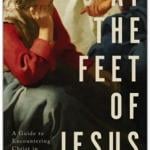When the seven bowl angels appear, the heavenly temple is filled with the smoke of God’s glory (Revelation 15:5-8). This links with the consecration of the tabernacle in Exodus 40 and of the temple in 1 Kings 8. In both cases, the glory of the lord fills the house so that no one can enter. In Revelation, it is the heavenly temple. That temple has been the sanctuary for the angels, the beasts, and the twenty-four Ancient Ones. But that... Read more


















